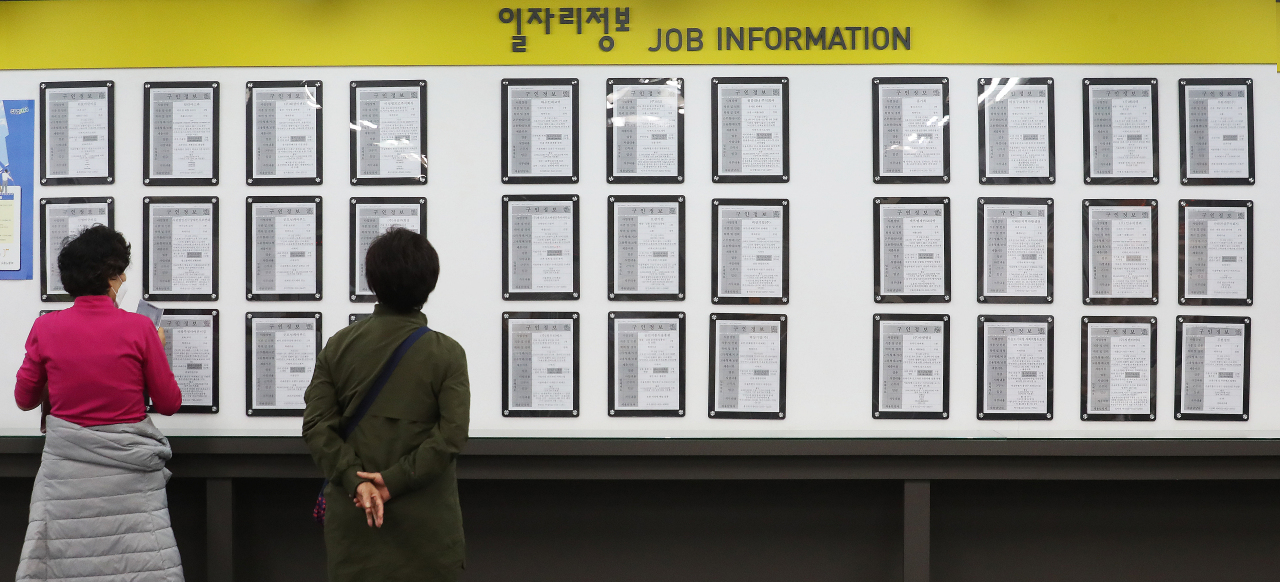 |
Job seekers look for openings at an employment exchange in Mapo, Seoul, on Tuesday. (Yonhap) |
Slammed by the novel coronavirus, South Korea’s labor market is shrinking fast, sparking concerns over its impact on consumer spending and the possibility of a sharp recession.
Total payouts for state unemployment benefits hit a record high of nearly 900 billion won ($738 million) in March, data released by the Ministry of Employment and Labor showed Monday. The figure had jumped by a whopping 40.4 percent on-year, affected by the risks stemming from the COVID-19 crisis.
The number of job openings also disappeared at the fastest pace in nearly a decade at the end of February, data from the Korean Statistical Information Service showed. Korean employers shed 63,318 jobs on-year, and the number of job openings stood at 139,485 in the cited period.
This marks the sharpest decline since August 2011, when 64,377 positions disappeared.
“The first shock that comes with an economic recession is a halt in hiring, which could eventually result in youth and mass unemployment,” Lee Sang-ho, a researcher at the Korea Economic Research Institute, said.
The struggling labor market is often linked to a decline in consumer spending, another key factor that could trigger a recession.
According to a report released by the Korea Insurance Research Institute, Korea’s consumer spending has entered a prolonged period of very low growth, much like the situation in Japan, where consumers choose “stock instead of spending.” This is mainly due to an increase in the nation’s household debt, it added, which makes it difficult for households to apply for fresh loans.
The Bank of Korea said earlier this month that the nation’s household debt had seen the steepest increase in history in March, with new bank loans extended to local households amounting to 9.6 trillion won. On a separate occasion the BOK also projected a grim outlook for the nation’s economic growth, with Gov. Lee Ju-yeol forecasting a figure below 1 percent. The central bank already slashed the estimate to 2.1 percent last month from the previous 2.3 percent.
Hours after the release of the Labor Ministry data, President Moon Jae-in urged his economic team to draw up special measures that would provide a cushion for the shrinking labor market.
“I hope the government will seek out bold measures by checking and coming up with the best support for companies that maintain their current levels of employment,” Moon said at the weekly meeting with senior Cheong Wa Dae aides.
He added that “this may be the start of a painful period,” referring to the latest labor market data, and said there must be no recurrence of the mass layoffs that took place during the 1998 Asian financial crisis.
“It seems inevitable that South Korea’s economy is heading toward negative growth,” Kwon Tae-shin of the Korean Economic Research Institute said.
“Weakened economic conditions alongside the apparent paralysis of manufacturing and consumer activities and the US’ and China’s economic contraction are signs that it is insufficient to change the course of the local economy, which is heading toward recession.”
By Jung Min-kyung (
mkjung@heraldcorp.com)








